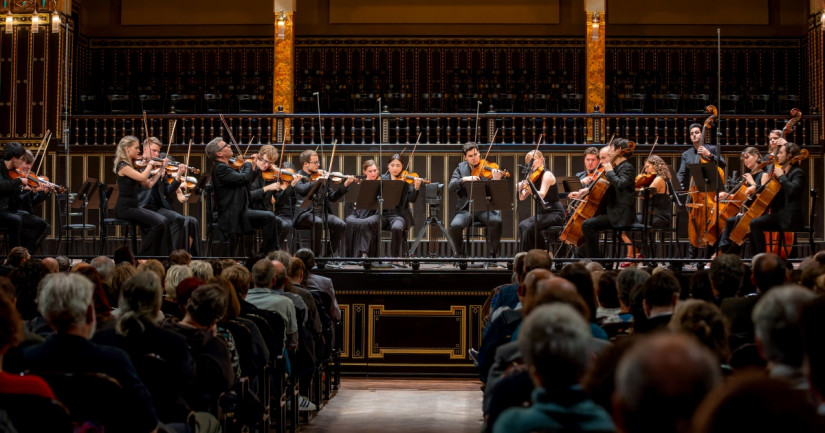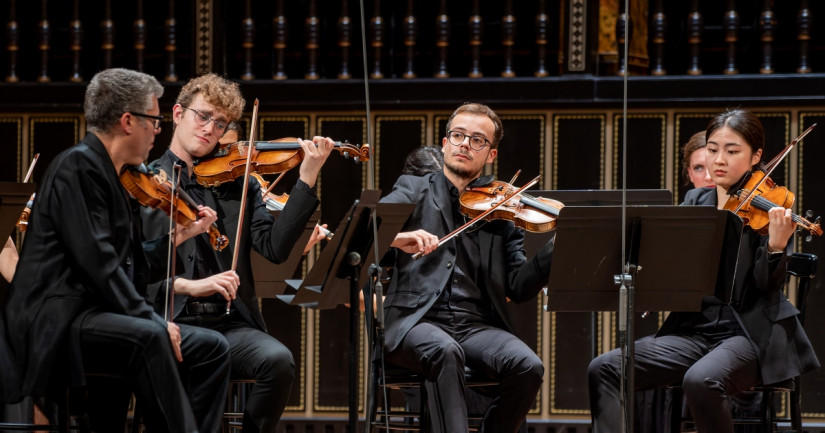European students in an intensive Erasmus programme at Liszt Academy
Students from seven partner institutions in Europe took part in a one-week workshop and played together at a concert with violinist Barnabás Kelemen at Liszt Academy. We talked to four of them about their experiences with the Erasmus Blended Intensive Programme.
Hannah Eberle studies at the music university in Vienna (MDW), Silje Gronning is from the Norwegian music academy (NMH), Pau Andreu from the Catalonia College of Music (ESMUC) and Gustavo Abela from the Royal Conservatory of The Hague. It was their first time in Budapest and the first time they had participated in such a programme. Their unanimous opinion was that Liszt Academy had organised the project excellently, from travel through accommodation and practicing facilities to the workshop, where they rehearsed Mozart’s Divertimento in D major, Tchaikovsky’s Serenade for Strings and Bartók’s Divertimento, as parts of the programme in Liszt Academy’s Grand Hall on 31 October.

They also said that world-renowned violinist Barnabás Kelemen, teacher at Liszt Academy’s Strings Department, taught them a great deal about chamber music, individual performance and working methods during the intensive course. They also found it exciting to play with fellow students from a wide range of institutions with different backgrounds and tastes.
Hannah Eberle described the programme as a great experience: being a principal in Tchaikovsky’s serenade was an enormous responsibility, but she learned a lot about body language, playing style, musical articulation, and although she had played this piece before, this time she experienced a different approach, an enlightening new path. And although it was only a short-time experience, she sensed that Liszt Academy seemed to place more emphasis on the clarity of expression than at her alma mater.
Silje Grønning felt that she had improved a lot, and considered Barnabas Kelemen a marvellous teacher who constantly shared useful advices, information and techniques. She found it a great experience to see talented students from all over Europe, with diverse cultural backgrounds. She had also played Tchaikovsky's String Serenade before and the way she performed it in this course was new, and she liked it very much. She believes that similar programmes can be useful because they broaden students' horizons by offering them different approaches, and she encourages all students to take part in similar projects.

Pau Andreu considered the workshop to be a rich experience and believed that working with a wide range of people from many different countries broadened students' views. He also gained a lot from this intensive workshop, new perspectives and approaches, in addition to new knowledge and technique. Bartók's music was a discovery for him, as it was for Gustavo Abela, for whom Barnabás Kelemen gave an exciting approach to Tchaikovsky's work, which was different from his previous practice.
All three interviewees echoed the general opinion of participants: intensive collaborative work within the framework of Erasmus turned out again to be an extraordinary experience as well as an enjoyable and effective way of thinking and learning together in an international community.


